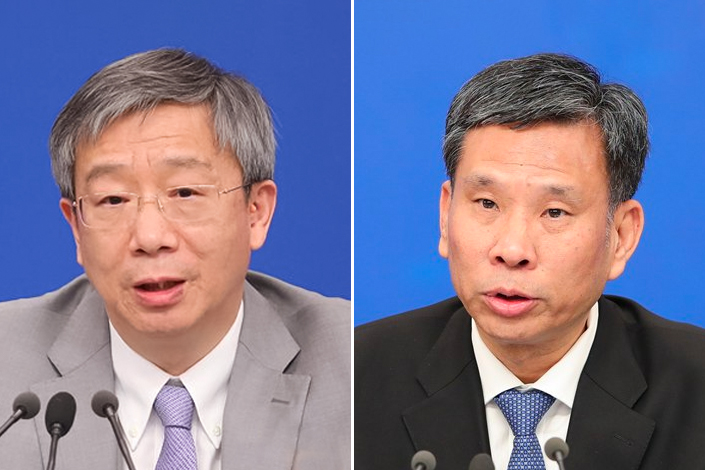
Yi Gang and Liu Kun will remain China’s central bank governor and finance minister, respectively, according to a meeting of the country’s top legislature on Sunday.
China’s decision to avoid a sweeping leadership reshuffle at the People’s Bank of China (PBOC) and the Ministry of Finance comes as the central government transitions to a new administration under Li Qiang, the former Communist Party chief of Shanghai who was elected premier on Saturday, succeeding Li Keqiang.
Yi, 65, has been PBOC governor for five years. He built his career as a scholar and has a solid academic background in macroeconomics.
Liu, 66, has also served as finance minister for five years. He is a fiscal reformer with extensive work experience in both regional and central finance departments.
The PBOC and the finance ministry, two of China’s most important economic authorities, are in charge of the monetary and fiscal policies underpinning the world’s second-largest economy. They are also tasked with tackling the nation’s major economic and financial risks, such as those in the property sector and poorer regions’ government debt.
One of the most profound risks lies in real estate, which has widespread connections to the financial sector. Since mid-2021, the property market has been stuck in a slump triggered by a regulation-induced liquidity crunch. This has worried financial institutions as developers have defaulted on debts and some homebuyers have boycotted mortgage payments for unfinished housing projects.
Since last year, governments at all levels have taken measures to reduce the fallout from the property market woes and improve quality developers’ financing environment.
For years, localities in China have piled up mountains of debt both on and off the books to finance day-to-day operations and promote economic development. The pressure to repay principal and interest has been building.
Local governments paid 1.1 trillion yuan ($158.7 billion) in interest on their bonds last year, a 20.8% jump from 2021, according to the Chinese Academy of Fiscal Sciences. They also borrowed more to repay principal on maturing debt. Around 86% of the 2.8 trillion yuan of local government bonds that matured last year was repaid using the proceeds of new bond issuance, the government-backed think tank wrote in a recent report.
Zhang Yukun and Zhang Ziyu contributed to this report.
Contact reporter Lin Jinbing (jinbinglin@caixin.com) and editor Leila Hashemi (leilahashemi@caixin.com)
Get our weekly free Must-Read newsletter.







